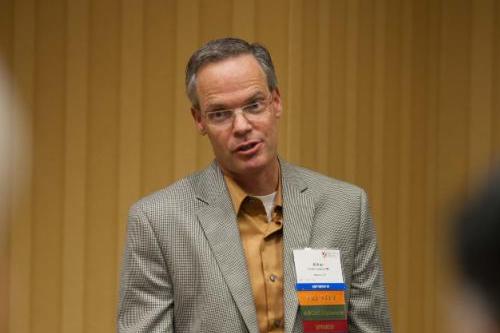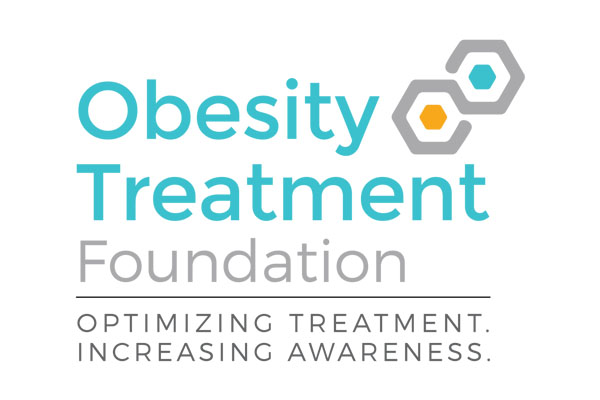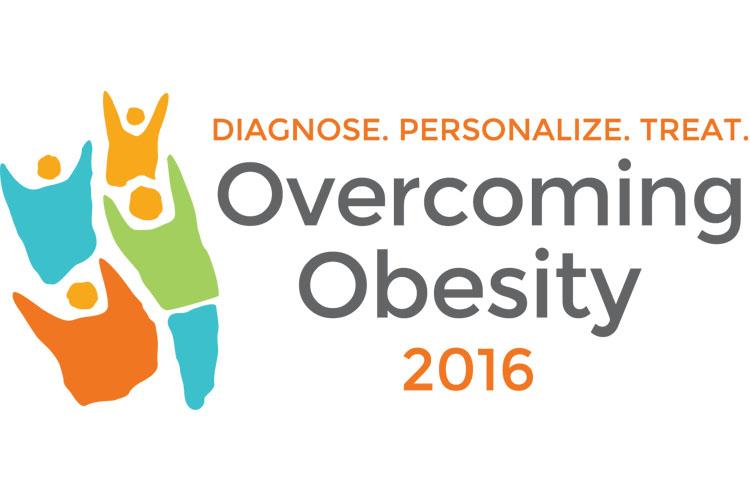 Driving Action and Progress on Obesity Prevention and Treatment Workshop Driving Action and Progress on Obesity Prevention and Treatment Workshop
During a workshop on Sept. 27, former Surgeon General David Satcher, former CDC director Jeff Koplan, current Surgeon General Vivek Murthy, and other health experts will discuss potential solutions to the obesity epidemic. The goals of the workshop are to identify what progress has been made, what current gaps and research opportunities exist, and what approaches will be most effective for preventing and treating obesity going forward. The workshop will be held at the National Academy of Sciences building in Washington, D.C., and will also be webcast live online for free.
|
 |
 Participate in a Focus Group at Overcoming Obesity 2016 Participate in a Focus Group at Overcoming Obesity 2016
We're offering a special opportunity to members attending Overcoming Obesity 2016 to give us feedback and help us improve the new Obesity Medicine Academy. We are looking for volunteers who have experience using the Obesity Medicine Academy to participate in a one-hour discussion group on Friday, Sept. 23. We will ask for your opinions on how we can best utilize and build the Obesity Medicine Academy to better meet member needs. To participate, email rachel@obesitymedicine.org. Participation is limited to 10 people, so sign up quickly and don't miss this special opportunity to help us shape the future of the Obesity Medicine Academy.
|
 |

Apply to Join a Committee: Enrollment Now Open
Apply to serve on a committee for the 2016-2017 term. Committee enrollment is open now through Oct. 7. Committee involvement is an exclusive benefit of membership and is a great way to:
- Collaborate on projects that impact OMA and the field of obesity medicine
- Gain valuable leadership experience
- Get to know your colleagues better
Learn more about our committees by sitting in on the meetings in Chicago. Each of our committees will meet during Overcoming Obesity 2016, giving you the opportunity to find out what each committee is working on and decide if you want to join.
Friday, Sept. 23
10:35-11:25 AM Marketing-Communication Committee
12:50-1:40 PM CME Overview Committee
12:50-1:40 PM Organizational Outreach Committee
12:50-1:40 PM NP and PA Committee
Saturday, Sept. 24
9:50-10:25 AM Advocacy Committee
9:50-10:25 AM OTF Development Committee
9:50-10:25 AM Pediatric Committee
12:20-1:10 PM Membership Committee
|
Obesity Treatment Foundation
|
 Clinical Practice and Compensation Survey Now Available Clinical Practice and Compensation Survey Now Available
OMA and OTF need your help to gather data for the Clinical Practice and Compensation Survey. This survey aims to further define the field of obesity medicine and helps you -- and other clinicians like you -- understand what fair compensation looks like, how other practices are set up, and how clinicians are reimbursed for obesity treatment. If you're a physician, nurse practitioner, or physician assistant member of OMA, look for an email with a link to the survey in your inbox today. The deadline to complete this important survey is Sunday, Oct. 2.
|
|
|
|
Executive Director
Sponsorships and Exhibits Manager
Operations Manager
Executive Director of the Obesity Treatment Foundation
|
|
101 University Blvd.,
Suite 330
Denver, CO 80206
|
|
|
Sugar Industry and Coronary Heart Disease Research: A Historical Analysis of Internal Industry Documents
Kearns, C. A., Schmidt, L. A., Glantz, S. A. JAMA Internal Medicine, 2016.
Researchers from the University of California San Francisco analyzed more than 340 documents from the Sugar Research Foundation (SRF), including internal documents, historical reports, and statements about the dietary causes of coronary heart disease (CHD). The researchers assembled their findings chronologically and created a narrative case study about the relationship between the sugar industry and researchers. The report shows that the sugar industry was aware of evidence in the 1960s that linked sugar consumption to high blood cholesterol and triglyceride levels; however, the sugar industry influenced researchers to conclude in their reviews that there was "no doubt" that the only dietary intervention required to prevent coronary heart disease was to reduce dietary cholesterol and substitute polyunsaturated fat for saturated fat in the American diet. This historical account of industry efforts highlights the importance of disclosing conflicts of interest and the need for financial disclosure on all studies. View article
|
Dapagliflozin Enhances Fat Oxidation and Ketone Production in Patients with Type 2 Diabetes
Giuseppe, D., et al. Diabetes Care, 2016.
People with type 2 diabetes (T2D) who are treated with sodium-glucose transporter 2 (SGLT2) inhibitors often have improved insulin sensitivity, but recent reports show that subjects may develop ketoacidosis. A study was conducted in 18 individuals with T2D who were randomized to dapagliflozin (n = 9) or placebo (n = 9) for two weeks. Dapagliflozin inhibits SGLT2 proteins, which are responsible for approximately 90% of the glucose reabsorption in the kidney. Results showed that dapagliflozin reduced fasting plasma glucose and increased insulin sensitivity. Glucose oxidation decreased, glycogen synthesis increased, and fat oxidation and ketone concentration also increased. This study shows that dapagliflozin improves insulin sensitivity and causes a shift from glucose to fat oxidation, in turn increasing ketone production. This provides a metabolic basis for how SGLT2 inhibitors may cause ketoacidosis. View article
|
Cardiometabolic Health in Adults Born Premature with Extremely Low Birth Weight
Morrison, K. A., et al. Pediatrics, 2016.
A study was conducted to compare health outcomes in adults born between 1977 and 1982 with extremely low birth weight (ELBW), 1.1-2.2 lbs, versus age- and sex-matched normal birth weight (NBW) control subjects. Results showed that the adults born with ELBW had a higher percent body fat and lower lean mass but similar waist circumference and BMI compared with NBW control subjects. ELBW adults had an increased risk of developing hyperglycemia and also had higher blood pressures. This study suggests that by the time adults are in their 30s, those born extremely prematurely may have increased body fat, lower lean mass, higher blood pressure, and an increased risk of developing glucose intolerance. View article
|
 |

Overcoming Obesity 2016: Chicago, Sept. 21-25
Overcoming Obesity 2016 is your primary source for clinical obesity education. This fall we're offering the Review Course for the ABOM Exam - the course preferred by physicians to help them prepare for the obesity medicine certification exam - and the Fall Obesity Summit, which contains an all-new lineup of topics and speakers. Overcoming Obesity 2016 takes place in Chicago on Sept. 21-25. Register online now! |
Review Course for the ABOM Exam
13.5 CME/CE | Sept. 21-22
Addresses the clinical topics physicians need to know for the American Board of Obesity Medicine (ABOM) certification exam.
If you're a physician planning to take the exam, use this opportunity to study for the exam and meet current diplomates of ABOM.
| Fall Obesity Summit
17 CME/CE | Sept. 23-25
Addresses clinical topics relevant to what's happening in the field of obesity medicine right now.
If you're a health care professional who encounters obesity in your practice, don't miss this opportunity to gain practical tips from experienced obesity medicine clinicians.
|
|
|
|
|
The Obesity Medicine Association and the Obesity Treatment Foundation thank our 2016 Corporate Advisory Council members for their continuous support.
|
© 2016 Obesity Medicine Association. All rights reserved. Materials may not be reproduced, redistributed or translated without written permission. Advertising disclaimer: Under a policy approved by the OMA executive committee and exhibitor/advertiser review committee, commercial companies may apply to advertise in OMA publications. Approval does not imply endorsement or official recognition of particular products or services.
|
|
|
|